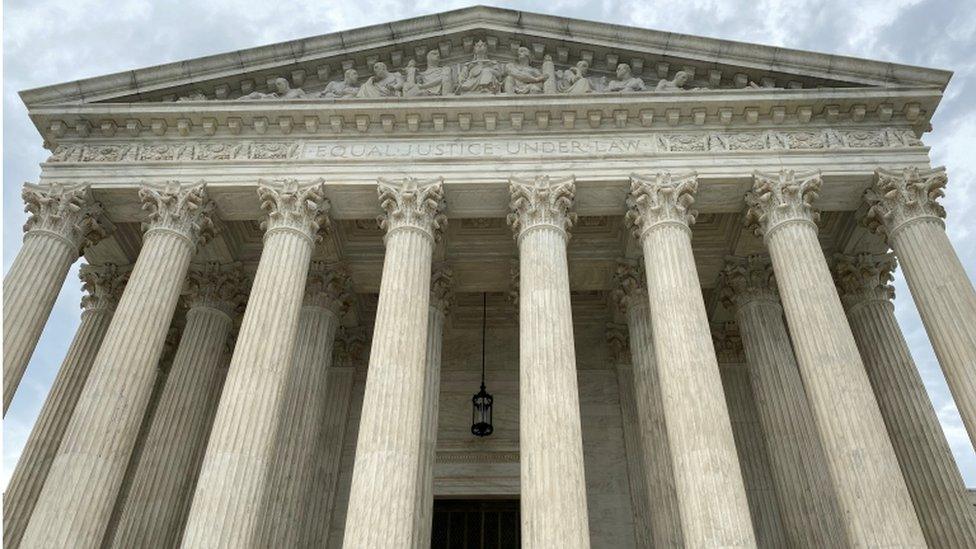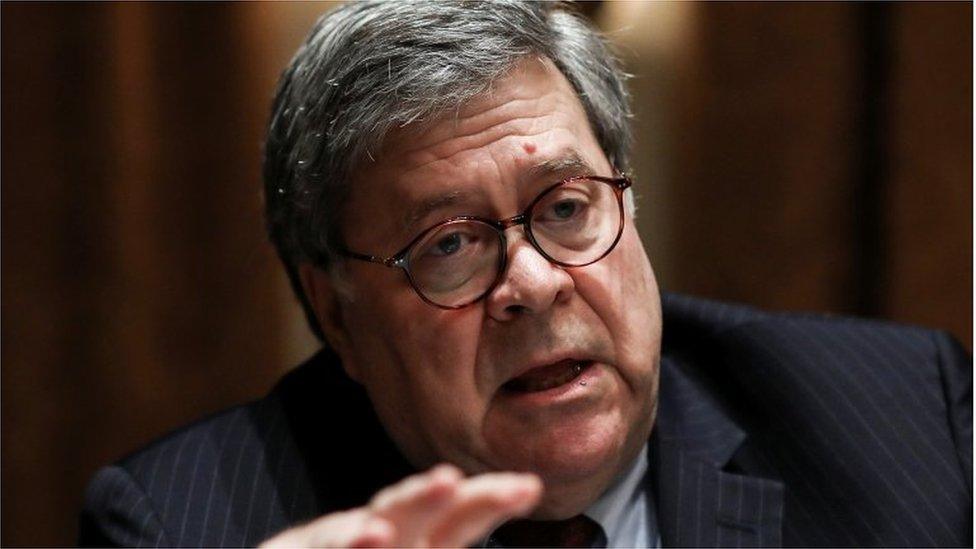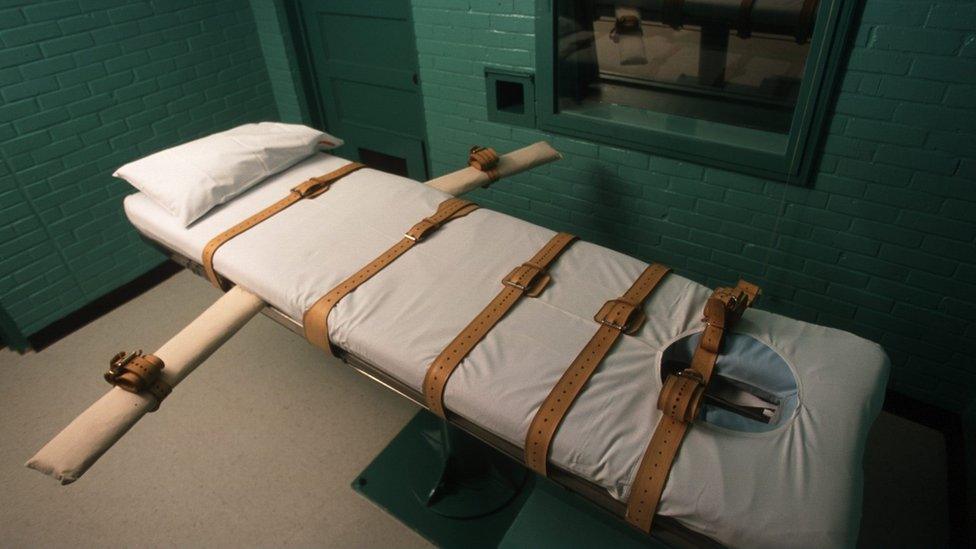US Supreme Court declines to take up federal inmates' execution appeal
- Published

The first executions to be carried out by the US federal government since 2003 can proceed after the US Supreme Court declined to rule on an appeal.
In turning away the case, the top court lets stand a lower panel ruling allowing the executions to take place in July and August.
Four inmates convicted of killing children had challenged the federal execution protocols.
However, only two of the nine Supreme Court justices voted to hear the case.
After a district judge's initial injunction last year stayed the executions, an appeals court reversed the order in April.
That reversal ended a nearly two-decade hiatus on capital punishment for federal inmates - though executions have still occurred at the state level.
In July 2019, Attorney General William Barr directed the Bureau of Prisons to revise the government's execution protocol to use a single drug in order to resume the federal death penalty.
Lawyers for four federal inmates - Daniel Lee, Wesley Ira, Dustin Lee Honken and Keith Nelson - appealed against the policy. They argued that the government did not give enough time for a judicial review of this new procedure.
Attorney Ruth Friedman, representing Lee, said: "Given the unfairness built into the federal death penalty system and the many unanswered questions about both the cases of the men scheduled to die and the government's new execution protocol, there must be appropriate court review before the government can proceed with any execution."

US Attorney General William Barr has ordered federal executions to resume this summer
The justice department meanwhile has said all four have "exhausted appellate and post-conviction remedies, and no legal impediments prevent their executions".
"The American people, acting through Congress and Presidents of both political parties, have long instructed that defendants convicted of the most heinous crimes should be subject to a sentence of death," Mr Barr said, external earlier this month.
"We owe it to the victims of these horrific crimes, and to the families left behind, to carry forward the sentence imposed by our justice system."
The department has also indicated more executions will be scheduled.
Who are the inmates?
The first inmate facing execution is Daniel Lee, a former member of a white supremacist group who killed a family of three in the 90s. His execution by lethal injection has been scheduled for 13 July.
The three other men - Wesley Purkey, Dustin Honken and Keith Nelson - will be put to death in July and August.
Purkey was found guilty of raping and murdering a 16-year-old girl, murdering an 80-year-old woman and kidnapping a child, resulting in the child's death. Honken was convicted of killing five people, including two children. Nelson pleaded guilty to the kidnapping, rape and murder of a 10-year-old girl.
Purkey's attorney has said he is mentally ill and cannot understand why he is to be executed, according to the Associated Press, external.
Honken's attorney has said there was misconduct during his trial that needed to be reviewed, and Lee's attorney has accused the government of using "false evidence".
- Published26 July 2019

- Published26 July 2019
